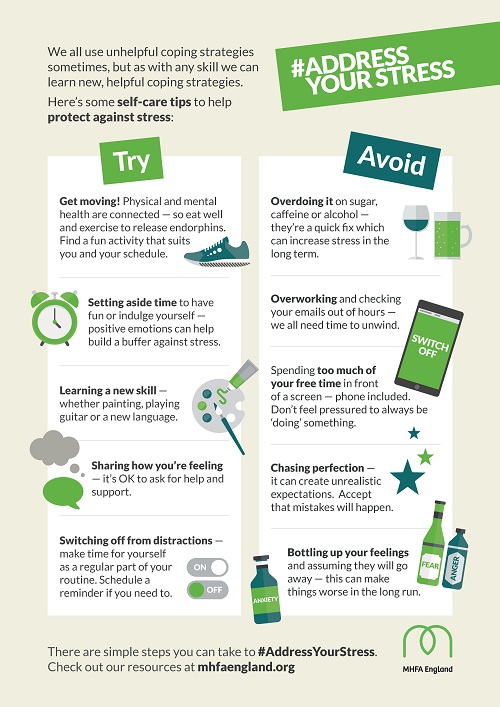
Anger Awareness Week
30 November 2018
We’re all partial to having a short fuse and getting angry sometimes – it’s an unavoidable part of life. Whether it’s being stuck in a traffic jam, your children arguing, or something you need being the day after it was supposed to arrive. However, it’s when anger goes beyond the normal level of frustration and begins affecting large parts of your life that you must start tackling it and dealing with it in a better way.
‘Anger is a problem when it harms you and other people around you’
The best place to begin is looking at your environment and the people around you and asking yourself if any of these factors contribute to your anger. If so, and if possible, it’s important to make an effort to remove these from your life. If it’s not possible, look at how you can work to better the factor to cause you less stress and anger. If, for example, your job is a factor and you’re unable to find another job, confide in your manager about managing your workload and look into whether your work offer staff benefits of counselling or stress management.
Anger can also exert itself in many forms, whether that be mentally or physically. Both are very detrimental to your health and wellbeing and to the health and wellbeing of people around you. Your local GP will be supportive in offering the best form of help specialised for you.
If you’re unsure as to whether your anger is impacting your life, ask yourself: Is my anger affecting my relationships? Is my anger causing problems in the workplace?
Anger management says ‘Everyone has a physical reaction to anger. Be aware of what your body is telling you, and take steps to calm yourself down”
The physical warnings of anger can be a fast heartbeat, rapid breathing, fist clenching or tension in your shoulders. Ways to improve this and bring yourself back to a calm place are:
1. Count slowly to ten and focus only on the numbers.
2. Breath slowly, take a deep breath in for 5 seconds and exhale for 5 seconds.
3. Remove yourself from the situation that is making you angry.
These are only short-term solutions and if you find yourself experiencing these episodes on a daily basis you may require more intense work. You can get this by seeking help from your GP.
If your anger or the anger of a family member becomes physical then it is definitely out of control. The consequences of this out of control anger can be devastating. If a member of your family is making your life difficult or you are a victim of domestic violence, there are organisations who can help you. If you live in the UK, the NHS has compiled a helpful page on how to get help in this situation. Women’s aid has produced a guide on how to cover your tracks online if you are searching for help using a shared computer.
Although anger can be very normal if someone else’s anger is affecting you physically and mentally this is not acceptable. Emotional and physical outbursts against you are not ok and you should seek help if you are experiencing this.
https://www.womensaid.ie/services/helpline.html
http://www.nationaldomesticviolencehelpline.org.uk/
https://www.gov.uk/report-domestic-abuse

Comments